¡Fuera! is what you shout at a dog (if you don’t shout ¡Sale!) when you want him to go outside. Fuera (no exclamation points) is also what we say when it turns out you aren’t, or won’t be where you normally are. BTW, this is about fuera, which is different from afuera, and this is one of those points on which what the strict grammatical rule says, and how people actually use the word is a bit different. A small tangent. Please pick up at the párrafo subsiguiente (paragraph after the next) if you’d like your day to be tangent-free.
You know how in English people occasionally (and often in reference to Marilyn Monroe) use the expression “come hither?” Well, hither used to be a common variant of “here” with “here” meaning the stationary place “here” and “hither” being the here that requires movement to get to. We see this in Spanish with aquí and acá, which in Chile are used (roughly) to mean the here that is here “aquí estoy!” (here I am), and “Ven acá” (come here, where you are not already here). If you are still following me, please go get yourself a cookie. You deserve one. We also see this distinction in terms of the word for where, where “¿Dónde está tu hermano?” (where’s your brother?) is a different word than “¿Adónde vas?” (Where are you going). Again, when used with verbs of motion. Fuera and afuera are alleged to have this difference as well, where fuera means (roughly) outside and afuera means to the outside. But the truth is, this is pretty much a useless tangent, because the descriptive grammarian in me can tell you that at least in Chile, they are not always used that way. Sometimes it’s fuera and sometimes it’s afuera. But I’m talking about a time when it’s always fuera. Please bear with me. End of tangent. Please eat cookie.
Here’s an example of fuera meaning outside of where we are now, or as I like to say it in English, “away.” Some friends recently asked me if I wanted to go to a beergarden-type-event in Santiago. And I responded that I’d love to, but “estaré fuera.” Which you could translate as “I’ll be outside.” But of course, that makes no sense, as me being outside (as in the out-of-doors) doesn’t bear on my ability to go to a beergarden. In fact, the beergarden is itself, outside. So what it means in this case is “out of the country.” It could also mean “out of the city that I’m in,” but usually in that case, I’d say, “estaré fuera de Santiago.”
Fuera is a stand-in for a million places. When I was in Talca, I was fuera de Santiago. When I am in California, I am also fuera but this time del país (of the country). I know we do this in English as well, with the word abroad, which can mean any of a host of countries, though usually it seems to mean across an ocean, or at least far away. I’m not sure that if my niece studies in Canada I’d say, “she’s studying abroad” (though if she does, I hope she goes to Montreal, because I really like it there). But there’s something about this fuera that is unique to me. It divides us into camps of “us” and “them” or “here” and “not here.”
I think it’s interesting how fuera splits the world into two categories, that which is here, and that which is not. Us and them. You’re either on or off the island. In Chile, it’s true. There is no grey area, a little toll-control from country to country. You have to cross an ocean, or a desert, or a mountain chain, or drive long distances to not be here anymore. And Santiago is sticky. Once someone Chilean moves here, they seldom (though not never) end up permanently fuera, unless they study or take a job abroad, and then they usually come back, turning into a person who “vivió fuera” or “estudió fuera” (lived or studied elsewhere). So perhaps after all this, what I’ve determined is that fuera really means “elsewhere.”
But fuera, like elsewhere, is a strangely empty word, lacking in information, a way of saying “not here” as opposed to “in this other place.” A description that is a non-description, like when someone invites you to an event and you say, “estoy complicado” (literally: I am complicated, but in this case, I already have plans). Nobody knows what the plans are, we just know that you can’t come along. Or that secretly te cargamos (you can’t stand us).
This, by the way, is a very, very long note, explaining that if you don’t hear much from me for most of the month of January, it’s because I’ll be fuera. And the most interesting bit of all, is that for part of this trip, I will be almost exactly where I was two decades ago. So if you knew where I was fuera (before I even knew what fuera meant), you know with some precision, adonde voy. (where I’m going).
Hint in the photo. Me, on my first sola trip fuera. Photographer unknown.

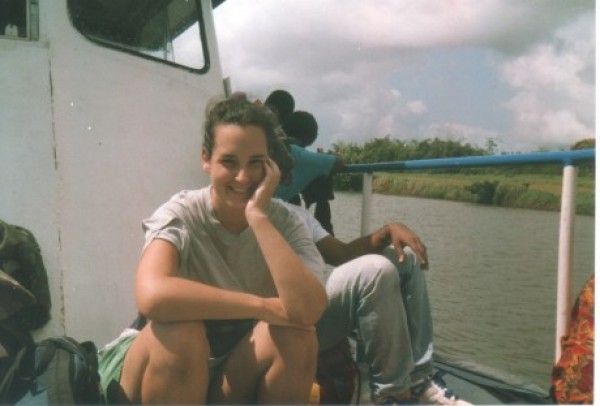
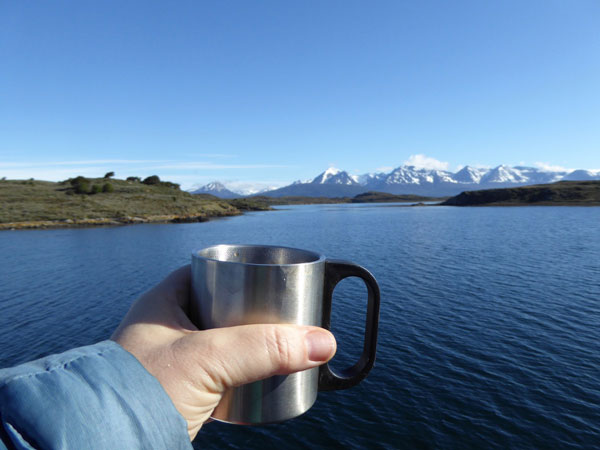
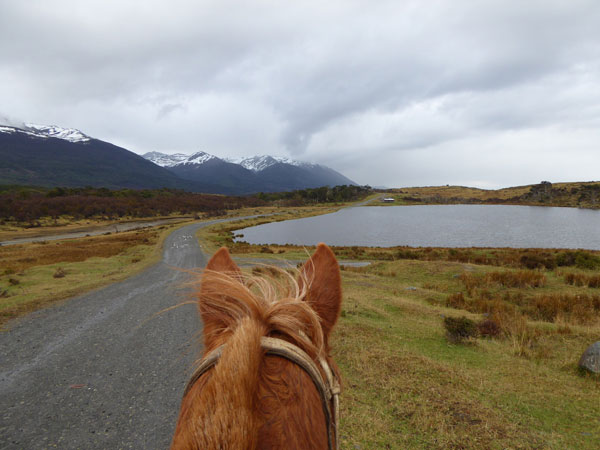
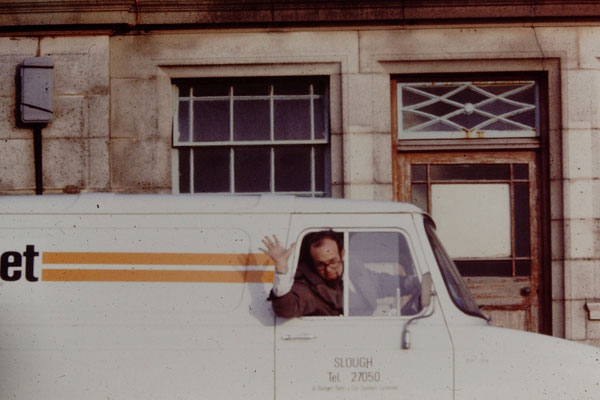
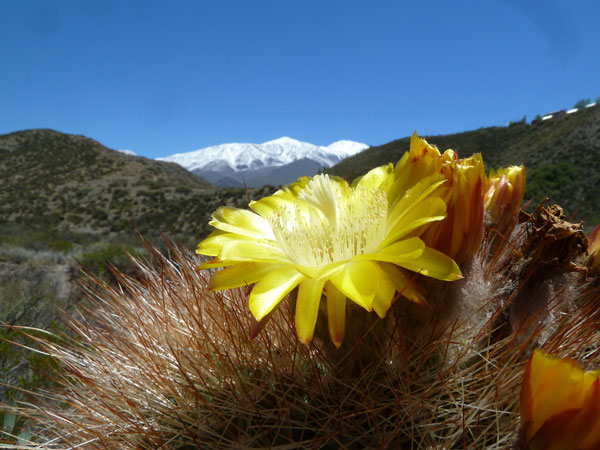
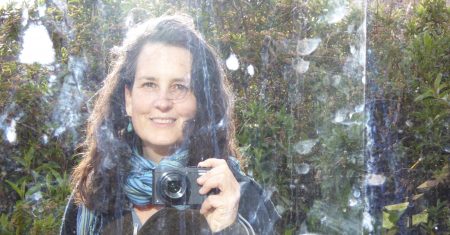
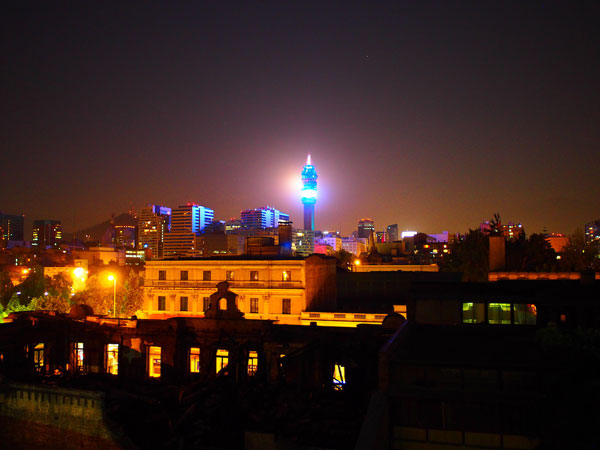
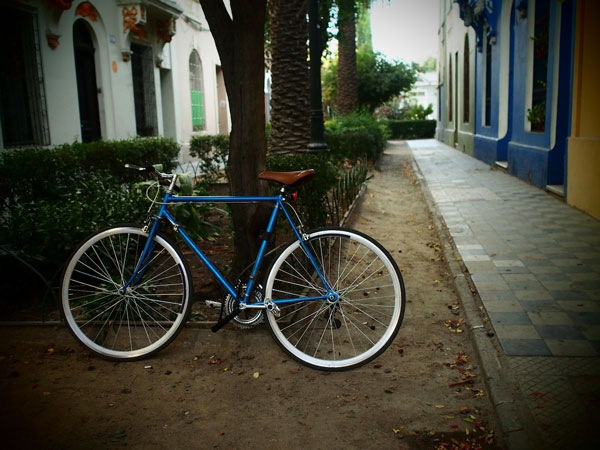


Hi Eileen, hope you had a nice Navidad, not too hot.
Do we get to guess where you will be “fuera”? Will there be more clues, or should we just jump in? 🙂
jump away! It was actually quite cool here around Christmas, a few cool nights, and near rain on Noche Buena. But the temps seem to be back up again. Blech! Hope you had a nice time, too!
Yes we had a nice family Christmas, thanks.
Okay here is my guess, somewhere on the Amazon.
Well, J says you look the same. SB says she can tell now why we say you guys look alike (though she’s not admitting that she looks like me!)
I won’t spoil the fun, since I know the answer. Have a great trip!
J is my favorite, then! and yeah, SB does not not look like me. Also, you showed her my blog? gaaaaaahhhhh. Kidding. I’m sure she can think of nothing more boring than reading her aunt’s blog!
I do believe it involves a different type of boat this time around though…
Cute picture of the you-minus-20 you!
Notable publicacion, nunca me habia puesto a pensar en el fuera y el afuera de esta forma, hahaha. Espero que lo pases shansho por donde quieras ir xD
You look the same! My guess is somewhere in Central America 🙂
You DO look the same. This is great and it has helped me to finally understand what I should say when people ask where I am from/where I live. My new answer shall be Fuerastan.
Love the lessons I get here. By the time I make it to Santiago (it’s on my list) I’ll be so well prepared and in the know. Thanks!